English Edition

- By CNI
- Category: English Section
- Hits: 616
CNI News
20 September 2025
Timor-Leste will not permit the establishment of offices or unlawful activities by organizations opposing the Myanmar government, said Mr. Bendito dos Santos Freitas, Minister of Foreign Affairs and Cooperation of Timor-Leste.
He made the statement during a meeting with Myanmar’s Foreign Minister U Than Swe in Nay Pyi Taw on September 18, 2025.
He also suggested that a Myanmar embassy could be opened in Dili, Timor-Leste.
A delegation led by Minister Mr. Bendito dos Santos Freitas visited Myanmar from September 17 to 19, 2025, on an official working trip.
During the meeting between the two foreign ministers, both sides agreed to strengthen diplomatic relations in accordance with ASEAN charters, principles, and standards, and not to interfere in each other’s internal affairs, according to a press release from Myanmar’s Ministry of Foreign Affairs.
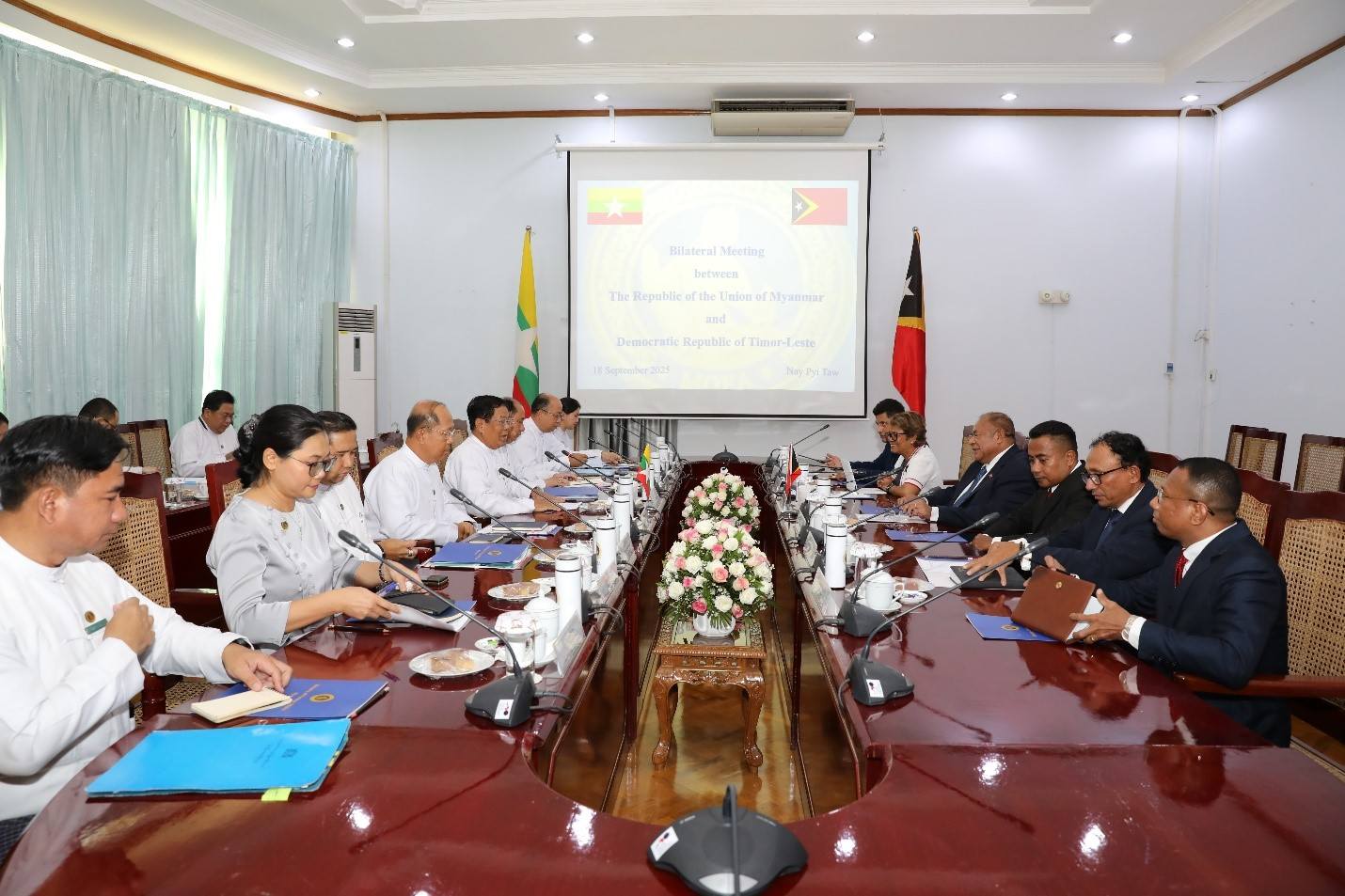
The discussions also included the possibility of signing a visa exemption agreement for holders of diplomatic and special passports between the two countries, as well as an agreement to facilitate tourism by granting visa exemptions for visitors from both sides.
Previously, Timor-Leste President José Ramos-Horta had said that his country recognized Myanmar’s National Unity Government (NUG), which is fighting to topple the military-led government headed by Senior General Min Aung Hlaing, and that NUG would be allowed to open an office in Timor-Leste.
President José Ramos-Horta made that remark when he met with NUG Foreign Minister Daw Zin Mar Aung on the sidelines of the UN General Assembly in 2024, according to Daw Zin Mar Aung’s comments to the media.
Following that, the Myanmar military government led by Senior General Min Aung Hlaing objected to Timor-Leste’s application for ASEAN membership.
Amid these developments, after Senior General Min Aung Hlaing held talks and gained support from international leaders including Chinese President Xi Jinping, Indian Prime Minister Modi, Russian President Putin, North Korean leader Kim Jong Un, Malaysian Prime Minister Anwar, and Indonesian President Prabowo, Timor-Leste’s position appears to have shifted.

- By CNI
- Category: English Section
- Hits: 638
CNI News
20 September 2025
Senior General Min Aung Hlaing, Chairman of the State Security and Peace Commission, said that the Dawei Port would be upgraded in the best possible way.
He made the remark on September 18, 2025, during a meeting in Dawei, Tanintharyi Region, with departmental officials and local community leaders to discuss regional development.
“With regard to Dawei Port, dredging works are being carried out along the Dawei River so that vessels can enter and leave smoothly. The Dawei Port will be upgraded in the best possible way.”, said Senior General Min Aung Hlaing.
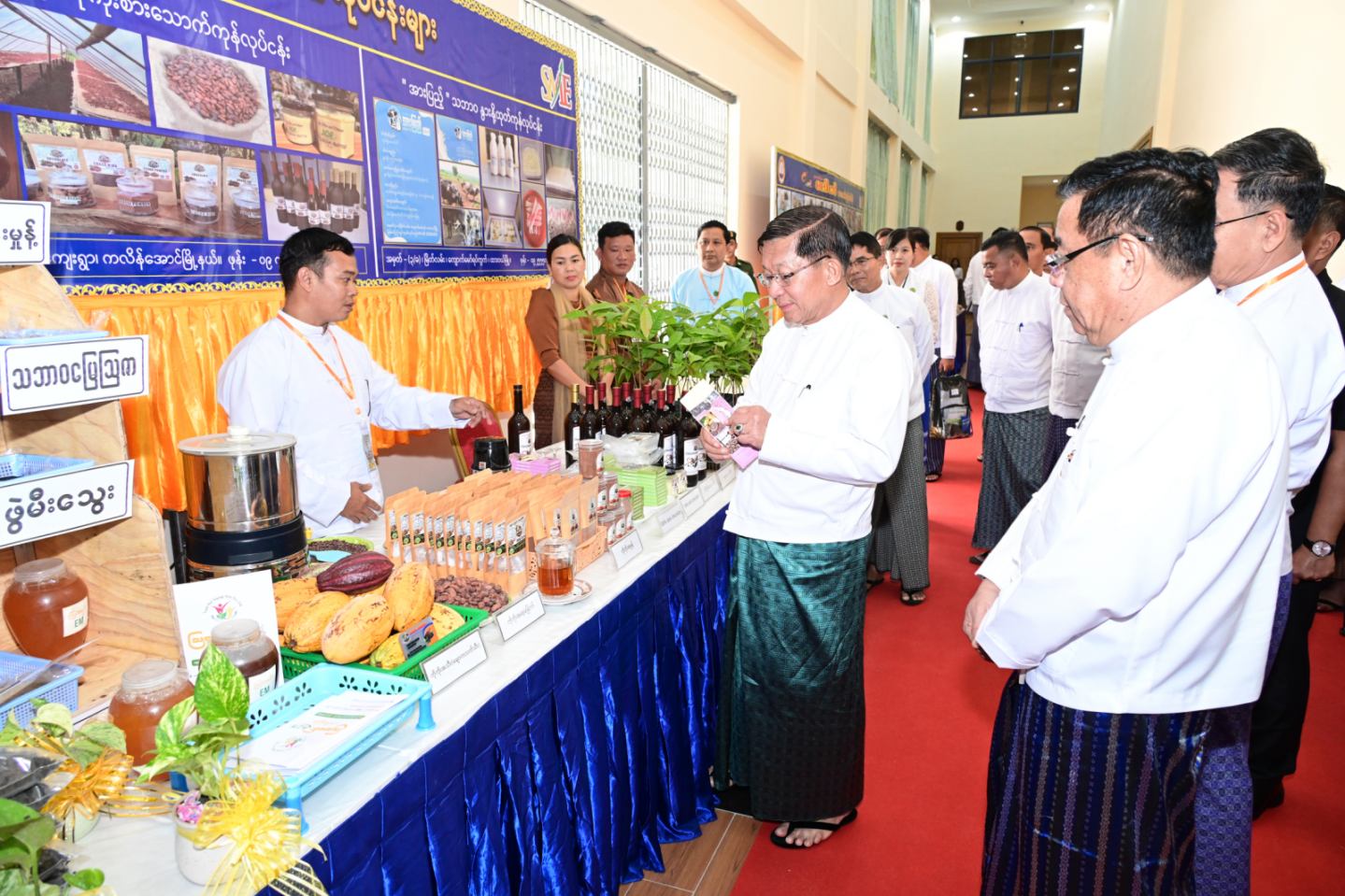
He added that the Dawei Airport is also being upgraded and expanded to enhance regional economic development and improve transportation links as well as that plans are underway to extend domestic flights to Bokpyin and Kawthaung as well.
The Dawei Deep Seaport Project was initiated with the signing of a Memorandum of Understanding (MoU) between Thailand’s Italian-Thai Development Company and the Myanmar government on June 12, 2008. The project aimed to be completed within ten years, from 2010 to 2019.
The project included the Dawei Deep Seaport, an industrial zone, and a 105-mile eight-lane superhighway linking to Kanchanaburi Province in Thailand, as well as a railway line, power lines, oil and natural gas pipelines, and a cross-border economic zone.
These infrastructure projects were to be implemented under a BOT (Build-Operate-Transfer) system with a 60-year concession.
Later, countries such as Singapore, China, India, and Russia expressed interest in investing in the Dawei Deep Seaport Project.

- By CNI
- Category: English Section
- Hits: 392
CNI News
19 September 2025
Since Myanmar’s Union Election Commission (UEC) has announced that the election will be held on December 28, within the 90-day period the Myanmar military may attempt to turn certain territories controlled by Ethnic Armed Organizations (EAOs) into its own administrative areas, said Dr. Aye Maung, Chairman of the Arakan Front Party (AFP).
On September 14, the UEC announced that elections would not be held in a total of 121 constituencies, including seats in the Pyithu Hluttaw, Amyotha Hluttaw and regional or state Hluttaws.
Dr. Aye Maung told CNI News that after the power was handed over to the National Defense and Security Council for holding the election, the Tatmadaw (military) would move to establish its administrative territories in some EAO-controlled areas within those 90 days.
“The election date is set for December 28. So after the SAC hands power over to the National Defense and Security Council, that council delegates special authority to the Commander-in-Chief. Currently, 63 townships are under military administration, and authority has been handed to commanders of the commands. But that delegated power lasts only for 90 days, which will end on October 31. Among the constituencies where elections are to be held, since there are townships controlled by armed groups, within those 90 days the military intends to turn those townships into its administrative territories. In other words, they will try to secure them quickly or gradually, depending on the circumstances.”, he said.
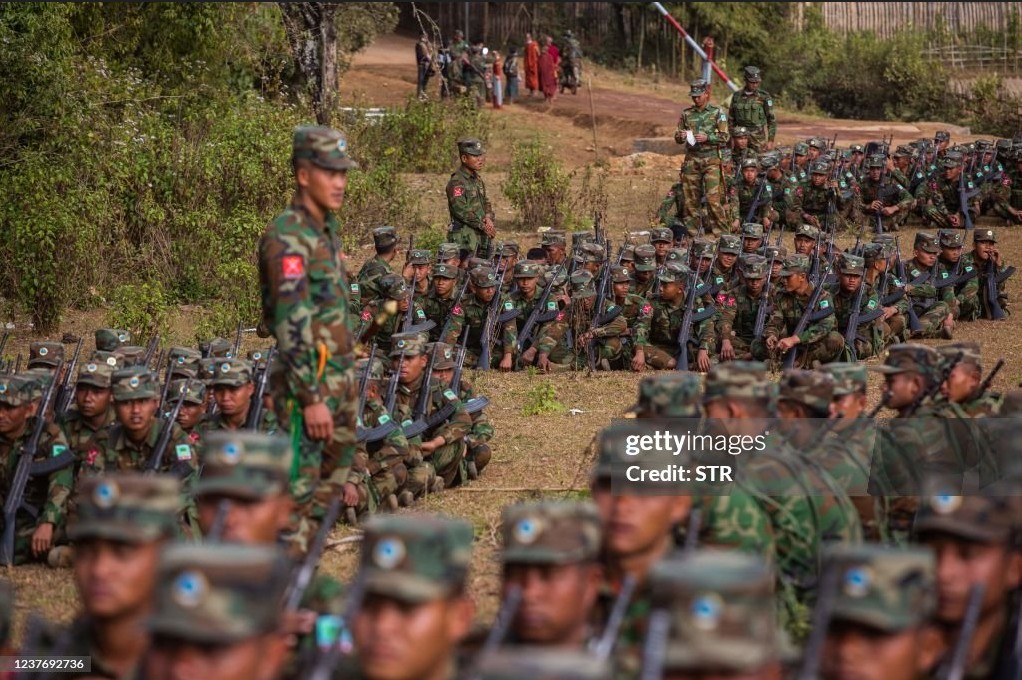
The TNLA troops
At present, in the townships where elections are declared to be held, the Myanmar Tatmadaw is launching offensives against resistance forces to secure control over territories for security reasons.
Because of this, intense fighting is ongoing between the Myanmar Tatmadaw and resistance forces in Kachin State, northern Shan State, Karen State, Sagaing Region, and Mandalay Region.
Due to these clashes, elections cannot be held in: 56 constituencies of the Pyithu Hluttaw, 9 constituencies of the Amyotha Hluttaw under the First-Past-the-Post (FPTP) system, and 56 constituencies of the state and regional Hluttaws under the FPTP system.
However, Phase (1) of the election will be held in 102 townships on December 28, 2025. The remaining areas are planned to hold elections in January 2026.

- By CNI
- Category: English Section
- Hits: 557
CNI News
19 September 2025
Due to restrictions, prohibitions, and requirements imposed by the Union Election Commission (UEC), political parties will have to compete in the upcoming elections with only limited opportunities, said Myanmar political analyst Dr. Aung Myo in an interview with CNI News.
On September 9, the UEC announced the dissolution of three parties for failing to meet the required number of members and offices to qualify for nationwide competition.
The UEC had earlier stated to CNI News on September 10 that any political party which fails to field candidates in all 417 constituencies nationwide will be dissolved.
According to Dr. Aung Myo, the current situation leaves political parties dependent on the status granted by the UEC, and therefore they should not expect concessions:
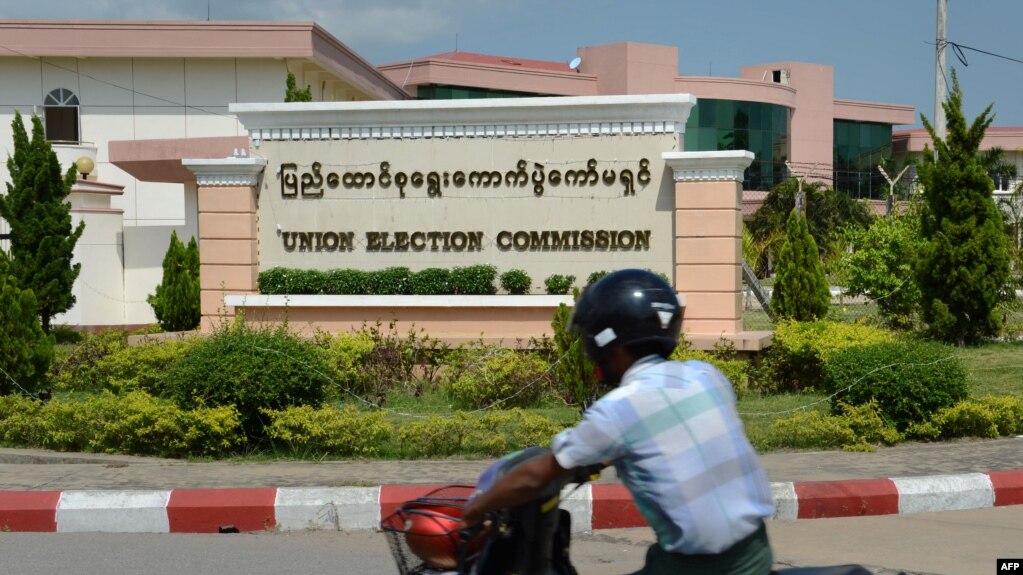
Union Election Commission office
“I feel particularly sorry for the dissolved parties. However, we should not be asking for favors or adjustments at this point, because the current reality is that political parties must operate within the framework permitted by the UEC. Given this position, what matters most is to make use of what opportunities we still have, and to rebuild democracy in the country as best we can. Our desire is to do it properly. So even if elections are held only halfway, or only in the cities, if parties cannot compete, then individuals will have to contest as independents. That path will remain open. That’s why I don’t want to say whether the UEC’s restrictions are good or bad—I only feel deeply sorry. In the end, individuals will just have to compete with whatever small opportunities they can get.”
Myanmar plans to hold the first phase of elections in 102 townships on December 28, 2025. On September 14, the UEC announced the timelines for candidate nominations, scrutiny, and withdrawals.
According to the announcement, candidate nominations for constituencies in various legislatures will be accepted from September 8 to September 22. Candidate withdrawals must be made no later than September 17. In the case of proportional representation (PR) constituencies, if a party withdraws a candidate, replacements can be submitted from September 18 to September 22.
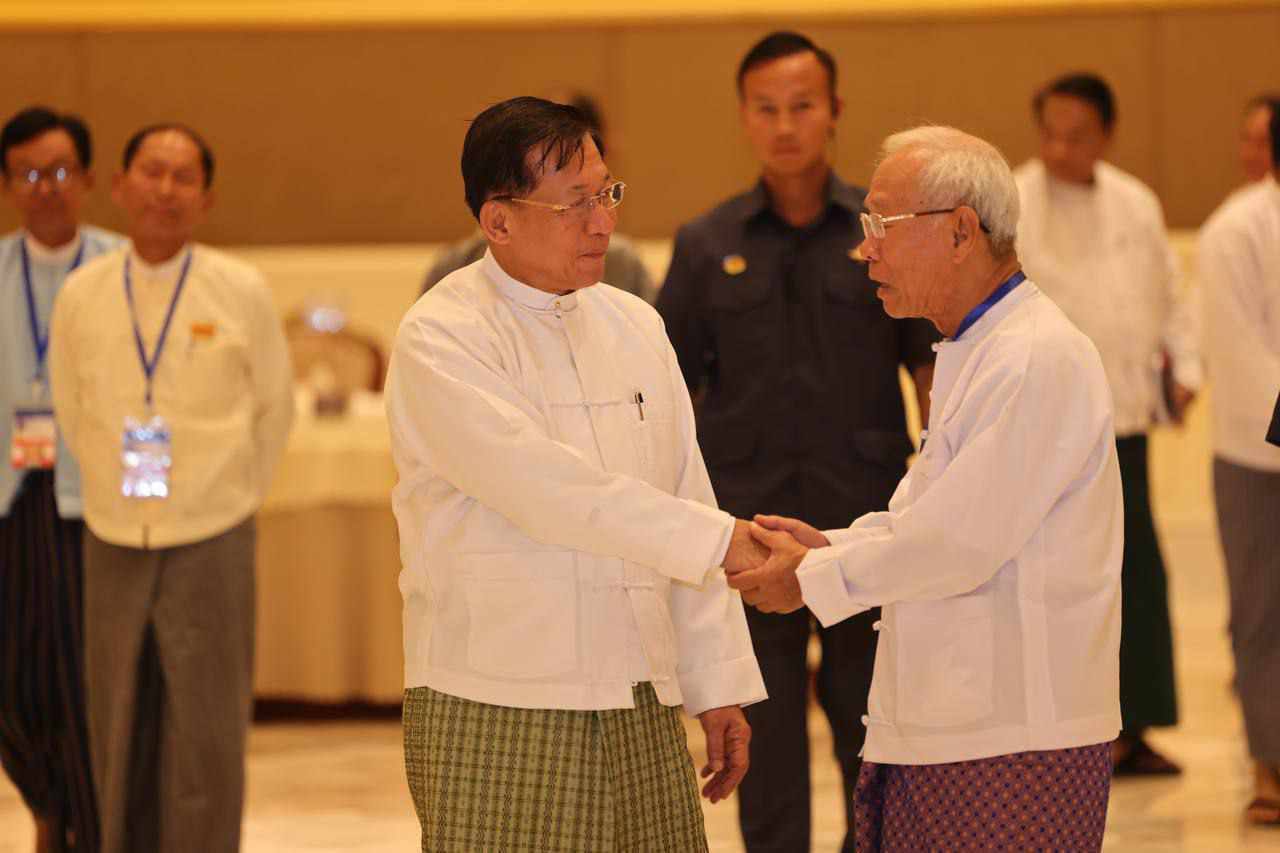
Senior General Min Aung Hlaing meeting with political parties
For parties contesting in only one state or region, the requirement is 1,000 party members and five offices in five townships within that state or region. Parties contesting nationwide must have 50,000 members, 110 offices, and field candidates in more than half of all constituencies.
U Khun Sai, a peace process participant, told CNI News that this situation favors the Union Solidarity and Development Party (USDP):
“It’s unfortunate, but it is what it is. We can’t avoid this reality. What it means is that the USDP is now even more certain to win. This is comparable to the 2010 elections. At that time, since the NLD did not participate, the USDP was guaranteed victory. Similarly, in the coming December elections, the USDP is even more likely to win. It’s not surprising.”, he said.
Currently, more than 50 political parties have been registered: six for nationwide competition and 52 for state or regional competition only.
The UEC stated on September 10 that it will proceed according to the laws in place to ensure only qualified representatives are elected into parliament.

- By CNI
- Category: English Section
- Hits: 446
CNI News
19 September 2025
The Myanmar military (Tatmadaw) will not launch large-scale military operations targeting any specific area or group during the pre-election period but will instead focus mainly on ensuring election security, said Colonel Khun Okkar, Chairman of the Pa-O National Liberation Organization (PNLO-NCA/S), in an interview with CNI News.
He explained that although the Tatmadaw is still conducting heavy offensives in some areas, including central Myanmar, these appear to be part of efforts to secure constituencies where the first phase of elections will take place in 102 townships.
“Before the elections, the battlefront will likely be narrowed as much as possible, and secure pocket areas will be created for holding the elections. What we are seeing now is more like building defensive fences around those areas to prevent disturbances during the elections. It doesn’t look like a campaign to completely annihilate any particular group. Since elections will be held in over 100 constituencies, the main focus seems to be securing those areas—recapturing and protecting them for the elections.”, said Colonel Khun Okkar.
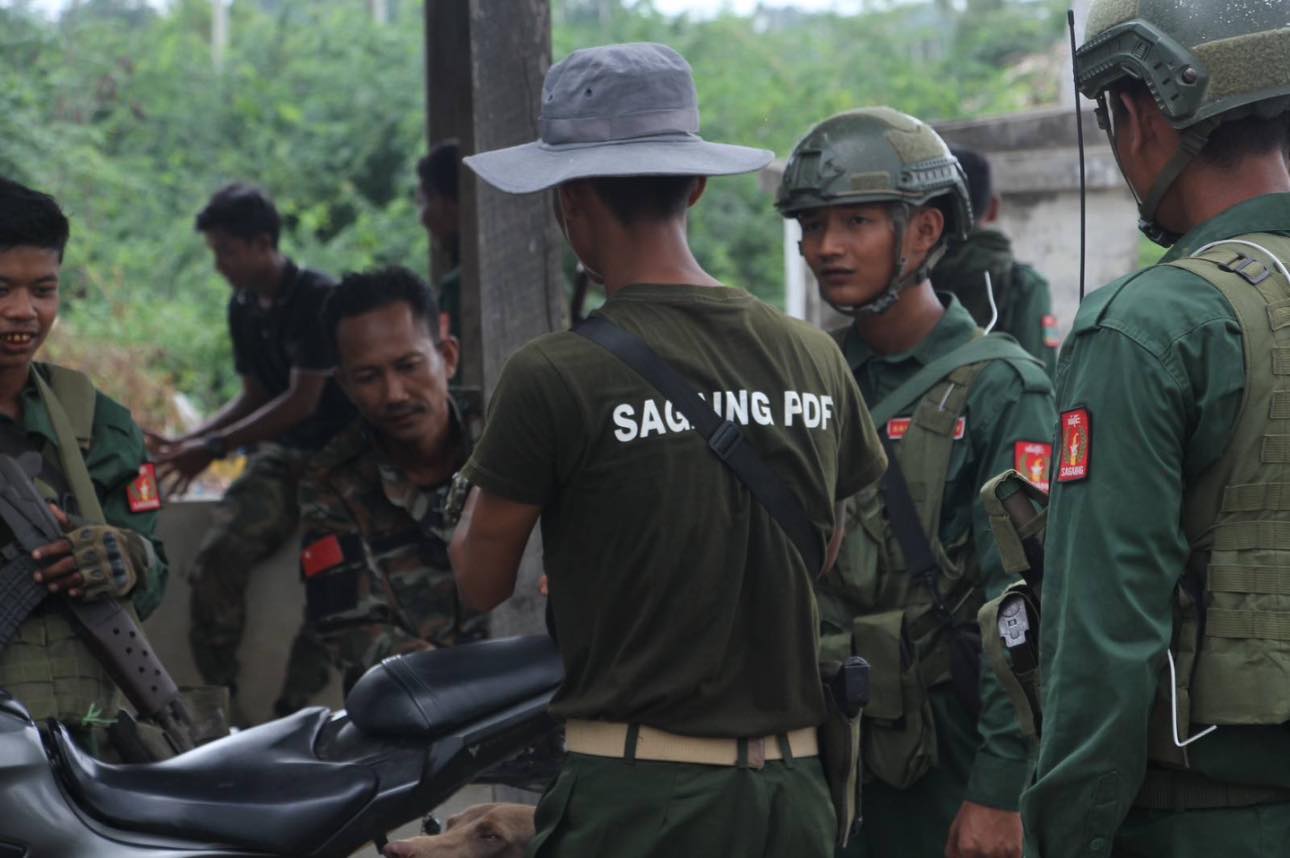
A People’s Defense Force unit
Currently, the Tatmadaw has regained control of certain territories it had previously lost, including Naungcho, Thabeikkyin, Madaya, Singu, the Kawkareik–Thingannyinaung–Myawaddy Asian Highway corridor, and several command bases, neighborhoods, villages, and outposts around Bhamo in Kachin State.
In addition, heavy clashes have recently broken out between the Tatmadaw and joint PDF forces in northern parts of Mandalay Region and central Myanmar.
According to military developments, central Myanmar may soon become more stable and peaceful, said political analyst Dr. Aung Myo in an interview with CNI News.
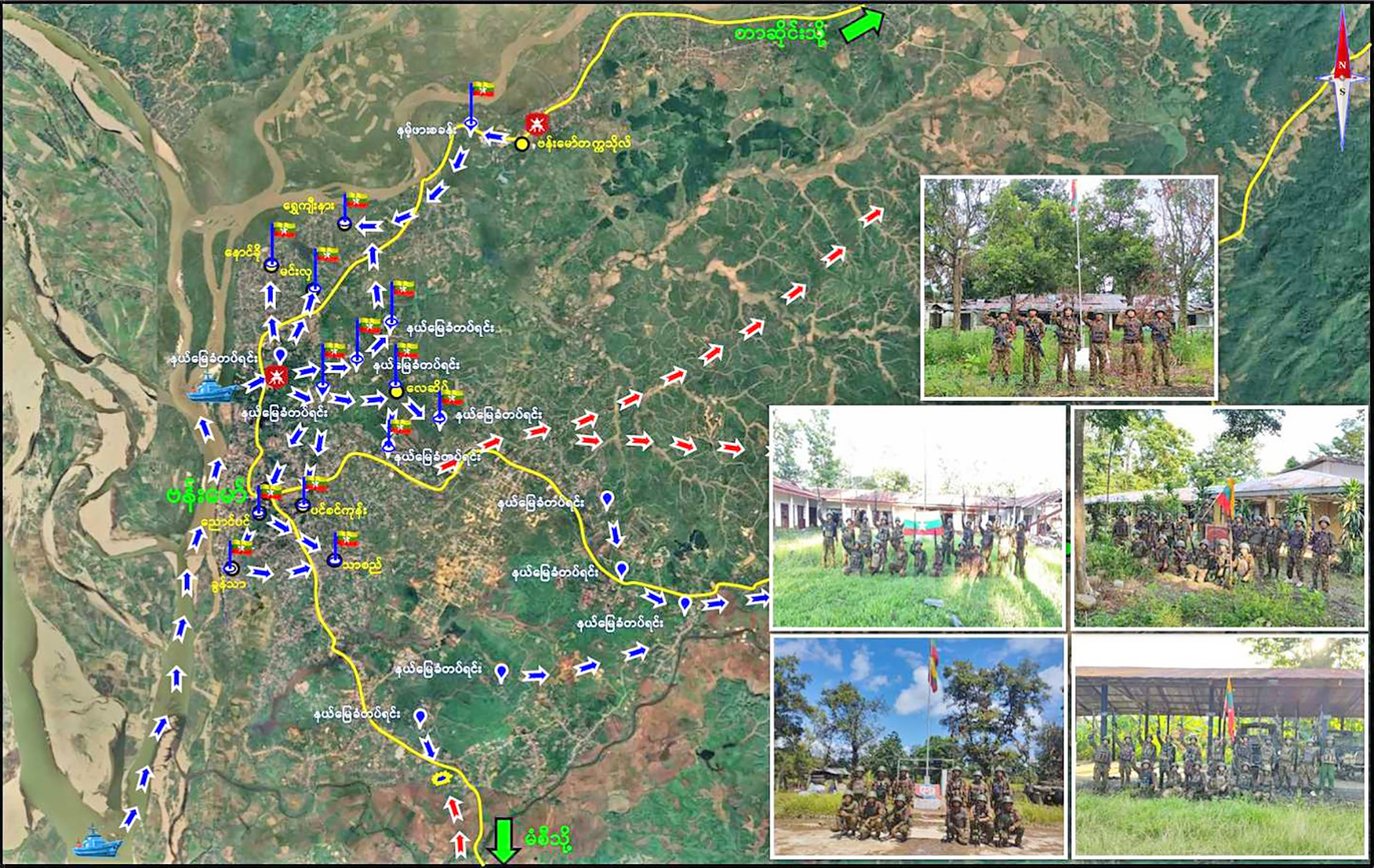
Tatmadaw regains control of Bhamo
“We often refer to the ‘Guerilla’ strategy. If successful, it suddenly leaps forward with momentum; if it fails, it suddenly collapses. That’s the reality. In particular, I see that central Myanmar is not far from stabilizing and becoming peaceful again.”, he said.
Military and political observers believe the Tatmadaw is trying to retake as much lost territory as possible before the elections in order to proceed with the voting process. These offensives reportedly involve not only ground troops but also airstrikes.
Therefore, military and political analysts point out that military operations may continue to expand and intensify up until the election period.

- By CNI
- Category: English Section
- Hits: 394
CNI News
18 September 2025
The fair and principled support of India and its people toward Myanmar represents an invaluable spirit of close brotherhood between neighbors, said Senior General Min Aung Hlaing, Chairman of the State Security and Peace Commission.
He expressed this view in a video message of birthday greetings sent on September 17, 2025, to Indian Prime Minister Narendra Modi on the occasion of his birthday.
Senior General Min Aung Hlaing said: “As a close friend, I am pleased to extend my respect and appreciation for your leadership since you assumed responsibility in India, making efforts for the socio-economic development of the Indian people, strengthening the unity of the great Indian nation, and raising India to become one of the world’s leading countries.”
India and Myanmar are not only neighboring countries but also share centuries-old historical relations. Beyond government-to-government ties, the people-to-people relations between Indians and Myanmar citizens are like those of long-standing friends.
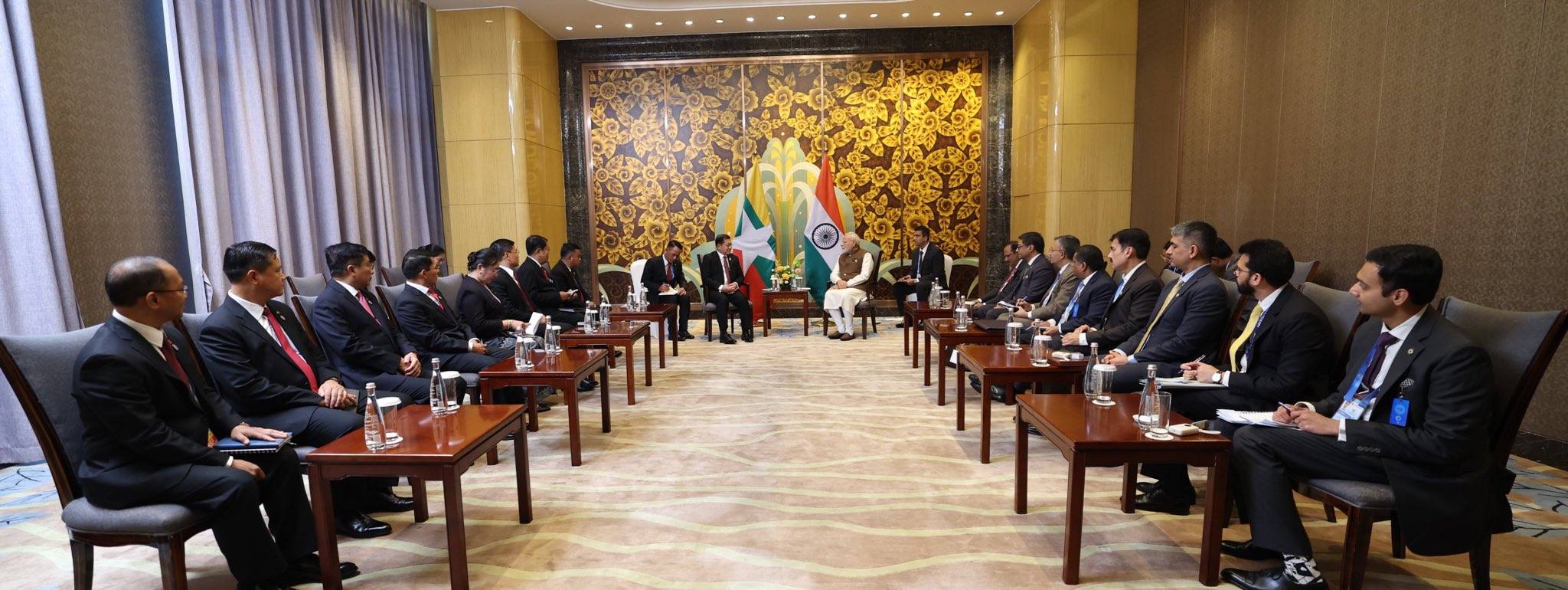
“During our country’s political transitions and in times of natural disaster relief operations, the compassion, understanding, and principled support of India and its people toward Myanmar have reflected the invaluable spirit of brotherhood between close neighbors. I take pride and joy in this.”he said.
Prime Minister Modi, born on September 17, 1950, celebrated his 75th birthday this year. U.S. President Donald Trump, along with leaders of Russia, the United Kingdom, and others, as well as Senior General Min Aung Hlaing, extended birthday greetings.
Senior General Min Aung Hlaing and Prime Minister Modi met on April 4, 2025, during the 8th BIMSTEC Summit held in Bangkok, Thailand. Later, on August 31, 2025, they also held talks in Tianjin, China.
Following these meetings, relations between India and Myanmar, including military-to-military ties, have shown further development.

- By CNI
- Category: English Section
- Hits: 642
CNI News
18 September 2025
It is reported that the Kachin Independence Army (KIA) and the People’s Defense Force (PDF) have jointly launched an offensive since September 15, 2025, aiming to capture Banmauk town, located at the gateway between the northern Sagaing Region and Kachin State.
KIA–PDF forces attacked in the direction of the Aung Kanbaw Thein Hotel in Banmauk, resulting in clashes with the Shan Nationalities Army (SNA).
“There is fighting going on in Banmauk. KIA and PDF are attacking together. Rumors say the KIA troops have orders to capture Banmauk within three days; if not, then within a week. Since Banmauk is a strategic point for reinforcements between Indaw and Bhamo, the Tatmadaw is sending troops there. Maybe that’s why they are trying to cut the route. It’s also an entry point into Kachin State, I think.”, said a local resident of Banmauk.
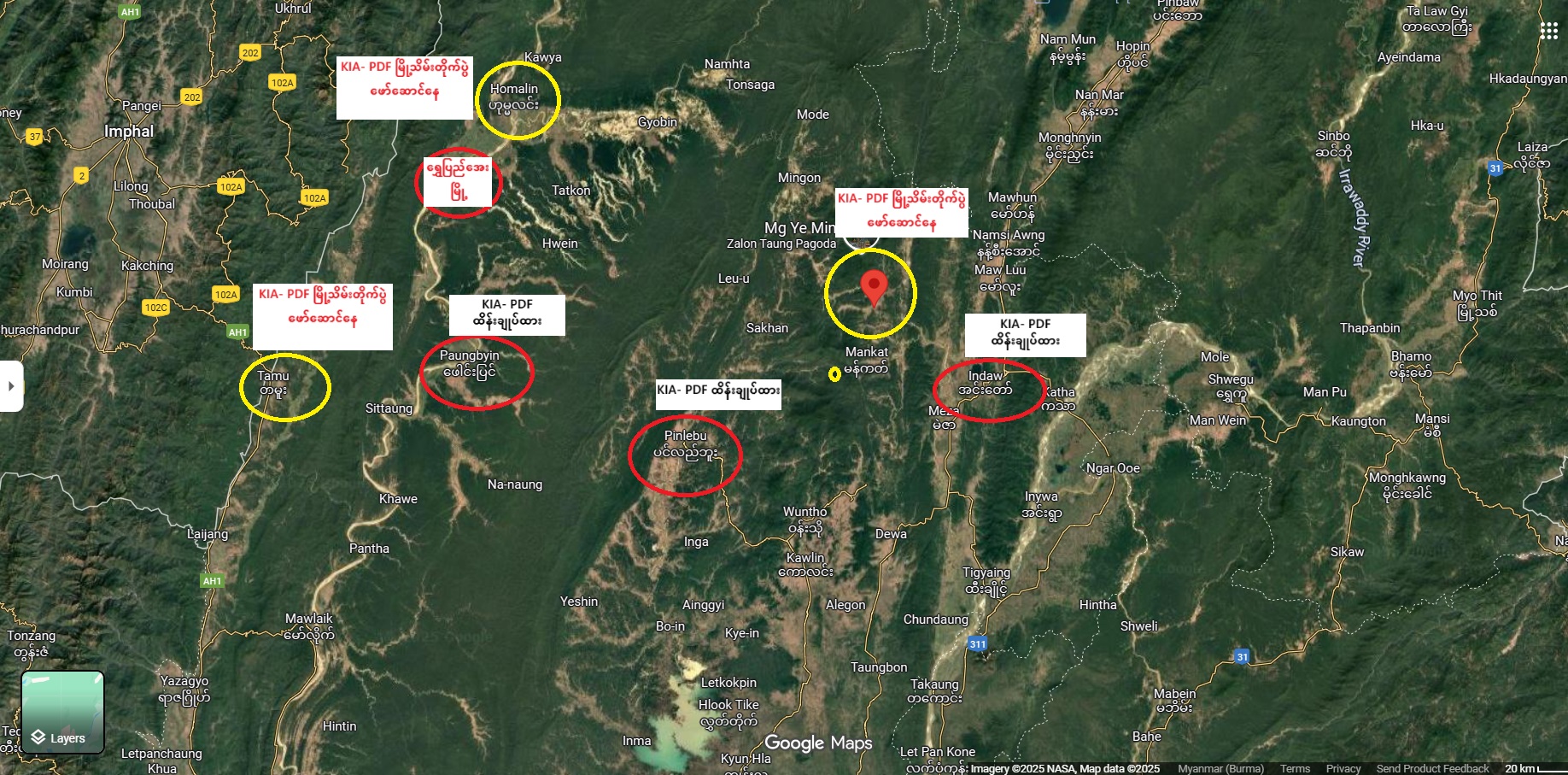
Map showing areas under KIA–PDF control and current battles for town capture.
Banmauk town, located at the border of upper Sagaing Region and Kachin State, is militarily strategic. It is also a market hub for illegal logging. Similarly, the town plays an important role in Mandalay–Banmauk–Kachin State trade.
Alongside the offensive on Banmauk, the Indaw PDF announced on September 15 that it had closed the Indaw–Banmauk strategic road and all other routes indefinitely.
Currently, KIA–PDF forces have already captured nearby Indaw town on April 7, 2025, and they are also attacking Bhamo town.
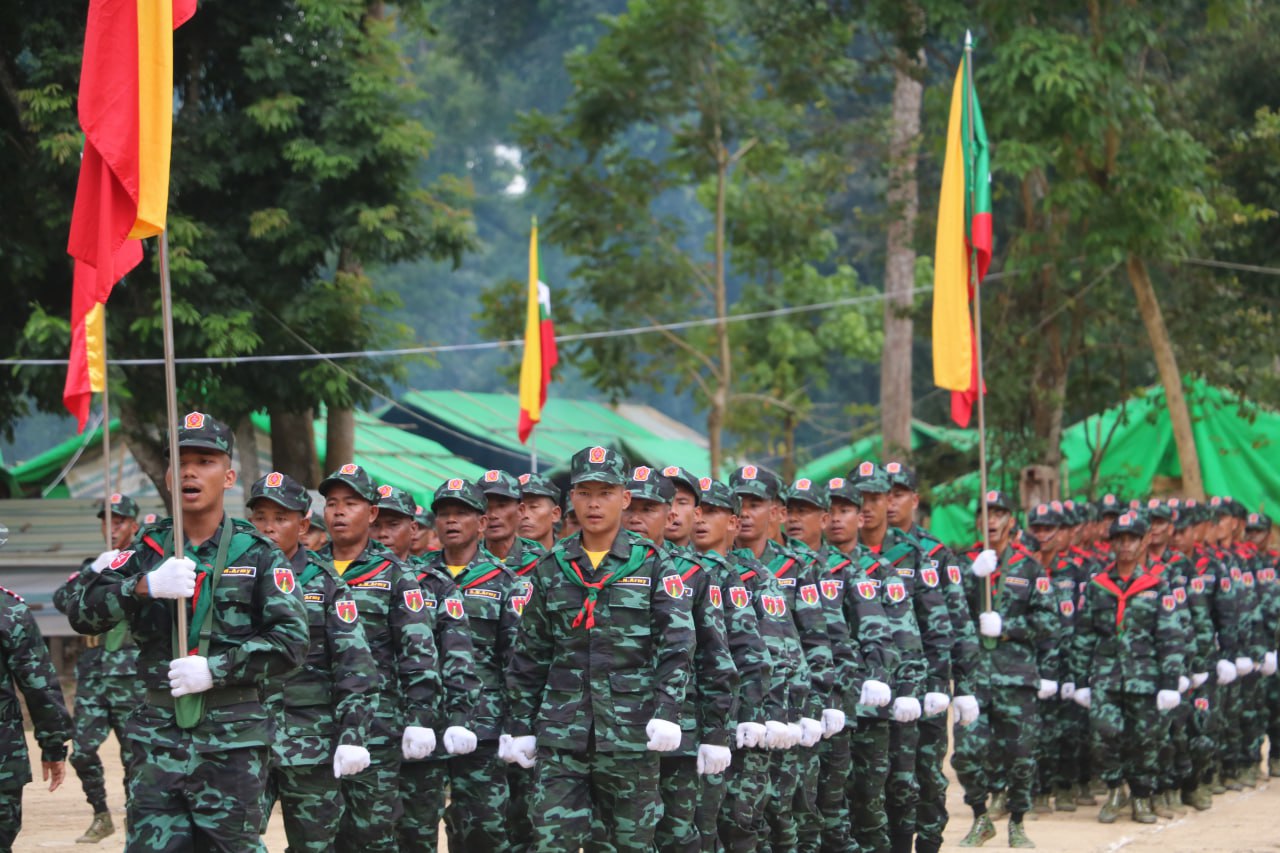
SNA troops
If KIA–PDF successfully captures Banmauk, observers note that they are likely to move on to seize Homalin town.
At present, KIA–PDF joint forces control areas around Banmauk and Homalin, including Indaw, Pinlebu, Phaungbyin, and Shwe Pyi Aye. If they also secure Banmauk and Homalin, they could gain control over the central and northern Sagaing Region.
After that, they would also be in a position to dominate the Myanmar–India border areas.

- By CNI
- Category: English Section
- Hits: 1454
CNI Articel
18 September 2025
India and Myanmar share a border of over 1,000 kilometers. In addition, the peoples living in India’s northeastern region and the peoples in Myanmar are anthropologically similar in appearance.
India’s Arunachal Pradesh, Assam, Mizoram, and Manipur states border Myanmar’s Sagaing Region, Kachin State, and Chin State.
Alongside this geographic proximity, India believes that armed groups waging insurgency against it—such as the Meitei, Mizo, Kuki, and Naga—are based and operating in areas inside Myanmar adjacent to the border.
The presence of these insurgent groups, combined with instability in Myanmar’s border regions, has become an obstacle to India’s northeastern development plans and its “Act East Policy.” Therefore, India is strongly intent on building greater peace and stability in its northeast as well as along the India–Myanmar border.
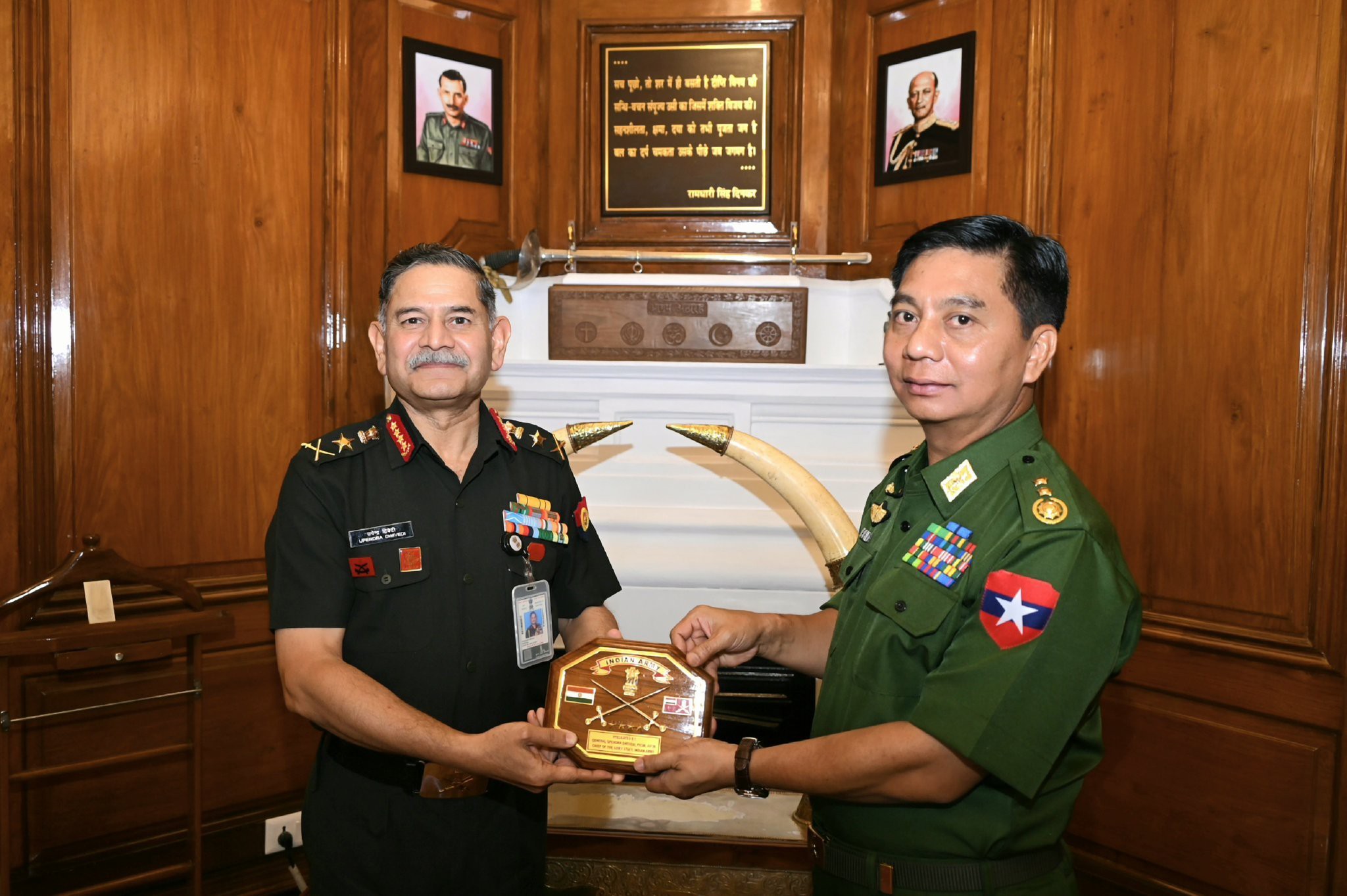
Because of instability along the India–Myanmar border, India has faced the following situations:
The suspension of the India–Myanmar Kaladan Multimodal Transit Transport Project.
The failure to implement the $4 billion India–Myanmar–Thailand Trilateral Highway Project.
The halting of border trade between the two countries.
The necessity of sheltering Myanmar refugees in India.
The suspension of the India–Myanmar–China Ledo Road renovation project.
India’s inability to pursue its resource extraction goals inside Myanmar.
Weakening of the rule of law in India’s northeastern region.
Delays in the development of India’s northeastern region.
For these reasons, India considers stability and the rule of law inside Myanmar and along the shared border essential, and it now appears to be contemplating deeper involvement in Myanmar’s current political situation than before.
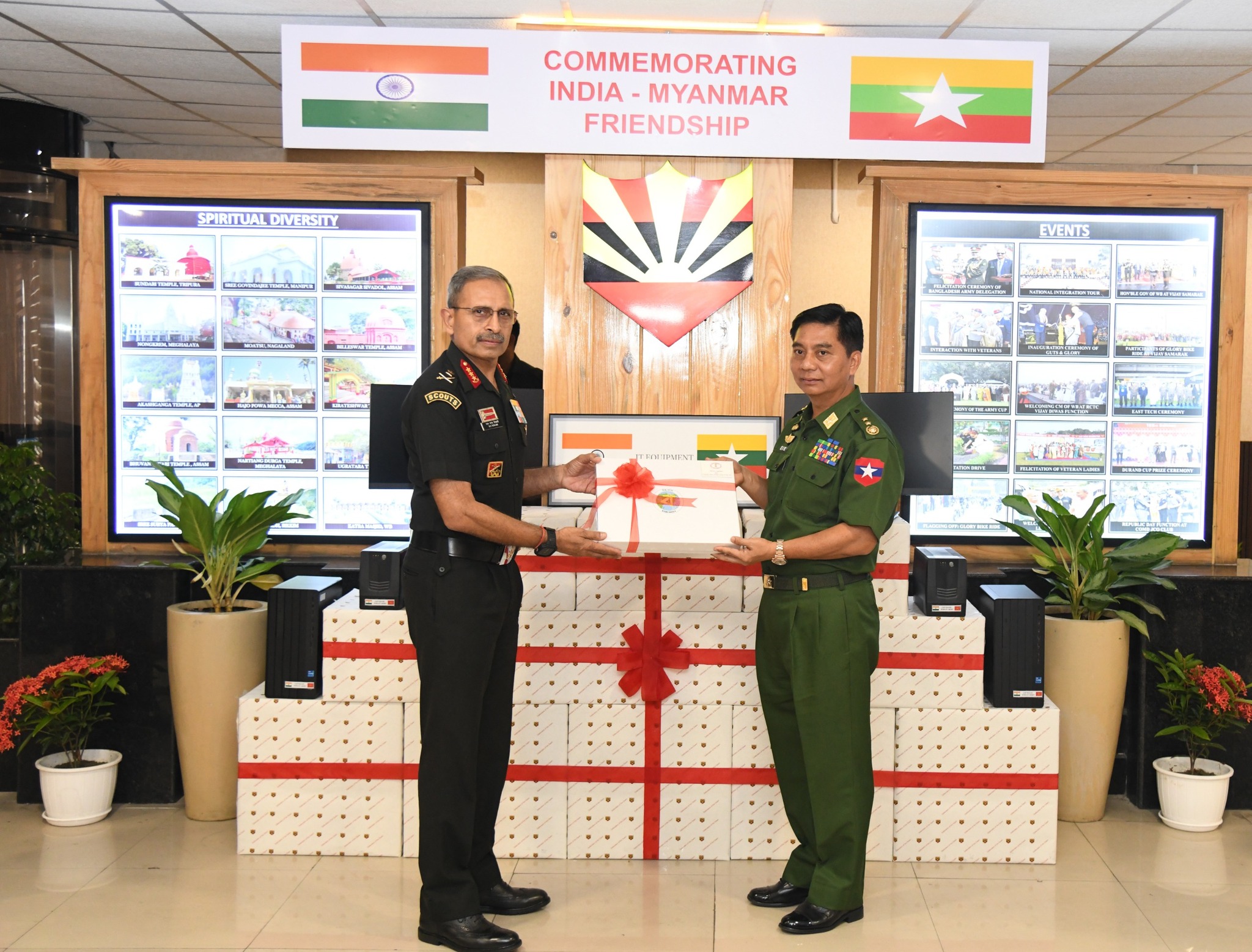
The reason for saying this is that, on August 31, 2025, in Tianjin, China, Indian Prime Minister Narendra Modi and the State Security and Peace Commission Chairman, Senior General Min Aung Hlaing, met and discussed (1) enhancing military security and defense cooperation between the two countries’ armed forces, and (2) cooperation on mineral extraction. These two points were publicly announced by Prime Minister Modi himself, while there may also be deeper, undisclosed matters behind the scenes.
Following this, a delegation of five officials led by Lieutenant General Ko Ko Oo, Commander of the Bureau of Special Operations (1), visited India and, on September 10, 2025, met with Indian Army Chief General Upendra Dwivedi in New Delhi.
During this meeting, they mainly discussed strengthening defense cooperation, expanding military relations, and reaffirming mutual commitments to regional peace and stability, according to the Indian Army.
Similarly, on September 12, 2025, Lieutenant General Ko Ko Oo met with Lieutenant General R.C. Tiwari, Commander of India’s Eastern Command, and other senior officials.
During this meeting, the Indian Army presented plans to provide the Myanmar Tatmadaw with modern IT lab equipment to improve digital training capabilities and information management systems. This presentation highlighted India’s support for upgrading Myanmar’s defense infrastructure and for strengthening bilateral cooperation through technology.
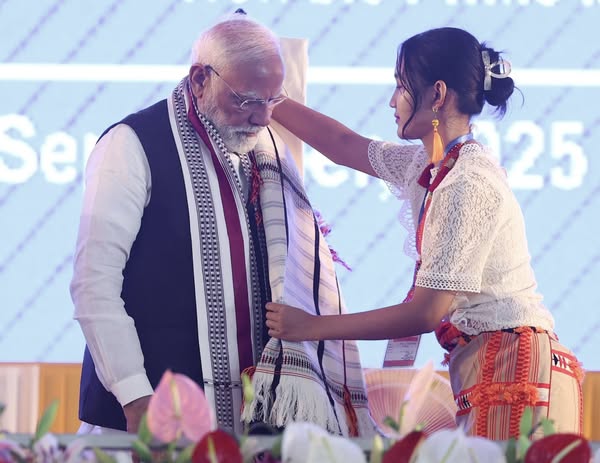
Lieutenant General Ko Ko Oo is the Commander of the Bureau of Special Operations (1), which oversees the Northwestern Command (Sagaing Region, northern Magway Region, and Chin State), the Northern Command (Kachin State), and the Central Command (Mandalay Region and southern Magway Region).
Thus, the Bureau of Special Operations (1) covers Kachin State, Sagaing Region, Magway Region, Chin State, and Mandalay Region.
India borders precisely these areas—Sagaing, Chin, and Kachin—where Naga and Meitei insurgent groups hostile to India are based.
Following this, on September 13, 2025, Prime Minister Modi visited Aizawl, Mizoram, a state bordering Myanmar and affected by instability, where he met with the state chief minister and local residents, delivering speeches.
Likewise, on September 14, 2025, Modi visited Imphal, Manipur State, where he also met with the chief minister and residents and gave speeches.
These developments show that India–Myanmar relations have been shifting since August. Whether these changes will bring stability and rule of law along the India–Myanmar border remains to be seen.
It will also be important to watch whether the two key points mentioned above can be realized and whether the eight challenges listed earlier can be addressed with positive outcomes.
In any case, if India and Myanmar’s governments and militaries cooperate to build stability and the rule of law along the border, there could be significant impacts on groups such as the Arakan Army (AA), Chin armed organizations (CNF, CNDF, Chin PDFs), Naga, Meitei, Mizo, Kuki, as well as Sagaing-based PDFs and the Kachin Independence Army’s military support in Sagaing.
For this reason, India–Myanmar relations are of great interest, and it remains to be seen how they will develop.

- By CNI
- Category: English Section
- Hits: 482
CNI News
17 September 2025
Local residents reported that the Kachin Independence Army (KIA) and the People’s Defense Force (PDF) jointly launched an offensive attack on Banmauk town, Sagaing Region, at around 10 a.m. on September 15, 2025.
The joint KIA–PDF forces attacked towards the Aung Kanba Thein Hotel area in Banmauk, leading to clashes with the Shan Nationalities Army (SNA).
According to local sources, around 80 joint KIA–PDF troops are attacking an SNA-controlled security post.
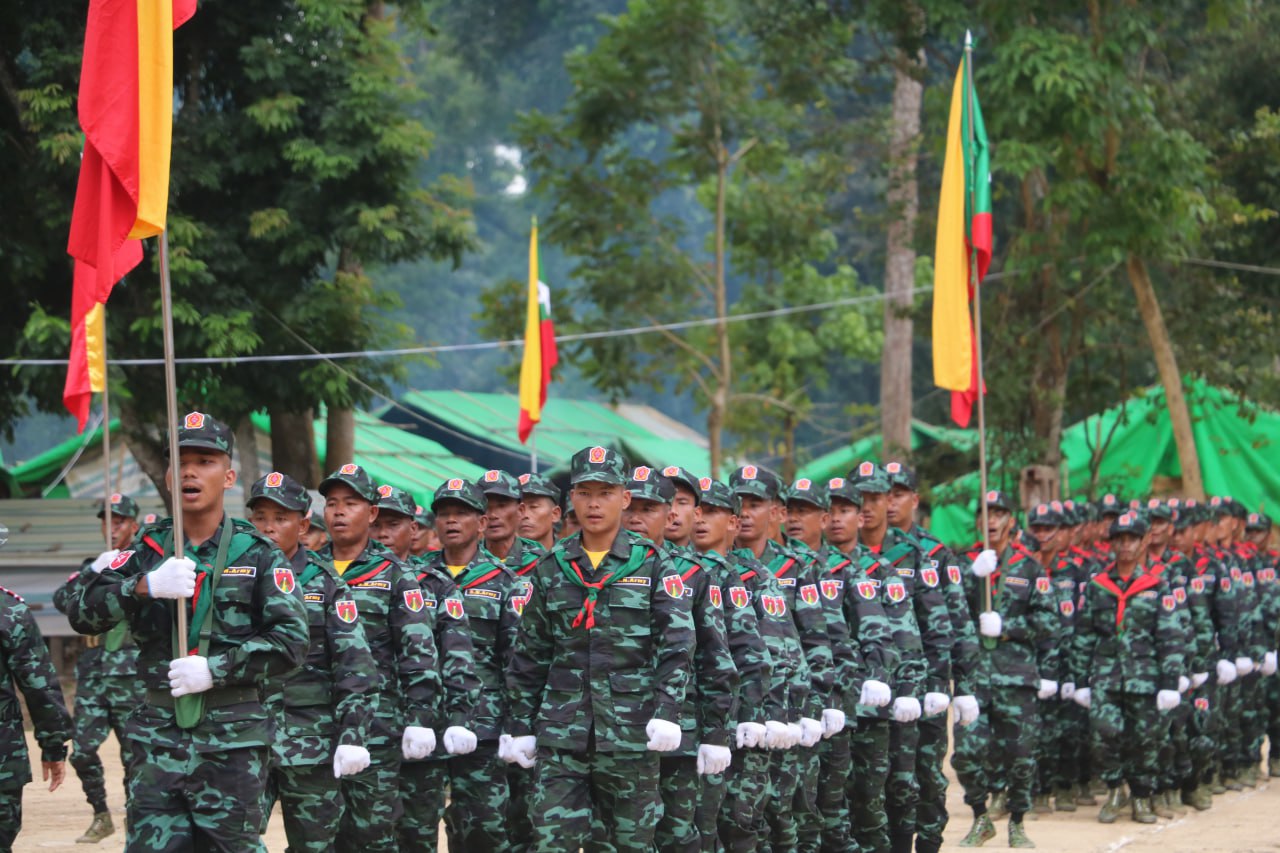
SNA troops
At the same time, the Indaw PDF announced on September 15 that it had indefinitely closed the Indaw–Bhamauk strategic road along with all other routes in the area.
The KIA–PDF have been attempting for over two years to capture Indaw and Banmauk, gateways into Kachin State. They successfully seized Indaw on April 7, 2025, and have since continued their efforts to take control of Banmauk.



